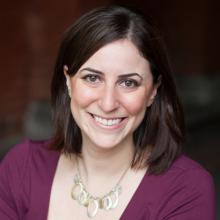
Member Prices
Non-Member Prices
This webinar provides information on the conceptualization and treatment of selective mutism (SM) across development. SM has received growing interest and attention in the last decade, resulting in improved and more accessible treatments. However, SM remains widely misunderstood among professionals, educators, and parents due to its complex and unusual presentation. Additionally, while SM was previously considered an early childhood disorder, there is growing consensus that SM is a “gateway” disorder, persisting into adolescence if untreated or inadequately treated, and that these youth may suffer even greater impairments and comorbidities than the younger ones.
In this webinar, we will first discuss the symptoms and impairments associated with SM, dispelling common misconceptions about the disorder. We will then briefly describe the established SM treatment for preschool- and elementary school-aged children, and the principles behind that treatment. Next, we will describe the characteristics/features of middle and high school-aged youth with SM, and highlight the differences in their clinical presentation from younger children. We will then introduce WeSpeak – an intensive behavioral group intervention for tweens/teens with SM. We will discuss the range of adaptations that have been made from both programmatic and technical/strategic perspectives to design a developmentally appropriate intervention for this subset of the SM population. This includes ways to 1) motivate and engage older SM youth in treatment, 2) structure the group in ways that most closely simulate real-world environments and situations, 3) systematically approach SM exposures, beginning with “fade-ins” to get them verbal, 4) interact genuinely and naturally, while at the same time challenging them to take steps forward, 5) help parents best support their kids in their journey to overcome SM, and 6) promote generalization so that the progress made during the intensive translates back to their home/school settings. We will provide examples of the goals that are targeted during WeSpeak, the activities and techniques used to target those goals, and the typical progress observed over the course of the week. Finally, we will discuss how clinicians, parents, and educators can use this knowledge to ensure that SM youth are receiving appropriate support and resources.
Learning Objectives
At the end of this presentation, attendees will be able to:
- Understand symptoms of SM, and the differences in clinical presentations across development.
- Learn the various developmental adaptations in working with tweens/teens with SM, particularly in the context of an intensive group intervention.
- Seek out appropriate resources for youth with SM.
This webinar is not eligible for CE credit.












